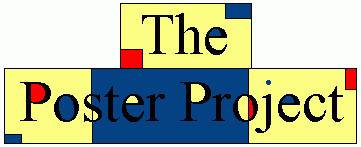
|
|

|
AlgebraAlgebra is about the power of abstraction: finding the core, important properties of what you are studying, and investigating only them, perhaps even removing them from the context in which they arose, because sometimes the specifics of a given problem can get in the way. Here is an example of what I mean. Pick a number between 1 and 10. Add 14. Subtract 2. Times your answer by 3. Subtract 6. Add up the digits in the number you now have. Divide by 2, leaving out any remainder. Add 1. Subtract 2. Times by 9. Add up the digits again. Subtract 5. Times by 3. Add 1.You now have 13. There are certainly many specifics in this example, but only one step really matters. Do you know which one? Next consider the following easy problem: Prove that the sum of an even number and an odd number is always odd. When you have the answer, check out my comments. Here are some similar problems:
Hopefully, these little examples give you some feeling for the power of abstraction. Modern day mathematics, of course, goes far beyond this. There is, for example, plenty of algebra which has nothing to do with numbers! What do I mean by this? Well, suppose we want to abstract the notion of addition. To do this, we need to isolate its key properties. Give it a try. Write down a list of what you think are the key properties of addition. When you're done compare your list with mine. Can you think of any other mathematical operations which have these properties? Remember, it is very important to think about what types of things you are allowed to operate on. It turns out that the properties I've outlined generalize very nicely. Suppose we have some abstract set (a set, for our purposes is just a collection of things. We call the things in the set elements) whose elements I will denote by alphabetical letters, and an operation on this set which satifies these properties. I will denote this operation by # (don't let this confuse you! Think of the # as being +, if you like -- I am trying to show you the power of abstraction.) What can we prove, knowing nothing about the set, or the operation, except that it has these properties? For starters, there is a cancellation law: If a#b=a#c then b=c.To prove this, we need to settle some notation. Each element has an inverse. We need a way of denoting this: I shall denote the inverse of a by (-a). And I will denote the identity element by 0. This notation is neatly summarized by: a#(-a)=0. Now to prove the statement. If then, so, using associativity, and by inverses, using the identity element gives, which is what we wanted. Notice the importance of the seemingly trivial associative property. This example of a set and an operation satisying these properties is called an abelian group. (The "abelian" part refers to the commutative property. It is named for a famous mathematician, Niels Abel. You can read more about Abel in the MacTutor History of Mathematics Archive. If the set and operation have all the properties except for commutativity, they are just called a group.) Here are some things for you to prove about groups:
Remember, everything you can prove about groups is immediately true for addition on the integers, and anything else which has the required properties. Let's look at one more abstraction before leaving algebra. How about "equals"? You know, the old = sign? Write down the key properties of the equals sign, then check out my list. What other "relations" have these properties? How about > (greater than)? How about < (less than)? How about "greater than or equal to"? How about something (seemingly) non-mathematical? Like "loves" ... is the relation "loves" symmetric, transitive or reflexive? Well, we have to think about each of the following:
Here are some more realtions for you to look at. Decide if they are symmetric, transitive or reflexive.
Read more about algebra in the Mathematical Atlas. 
|